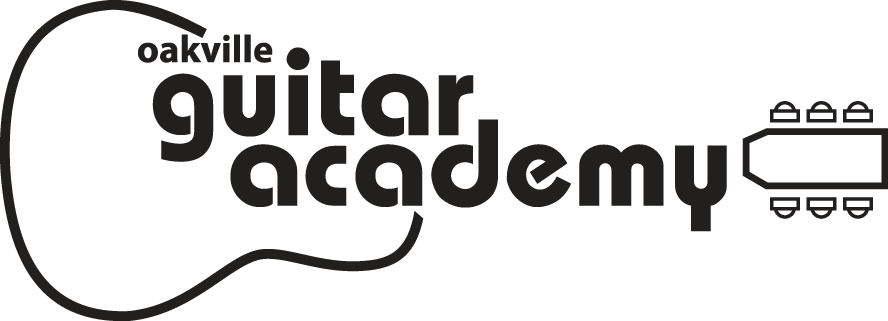Guitar Programs for Kids 8-11
Kids Guitar Lessons in Oakville
Our kids guitar lessons are thoughtfully crafted to build interest, engage, inspire, and empower your child in their musical exploration. Learning guitar will be a fun and rewarding experience for them, helping to inspire in them a lifelong love of music.
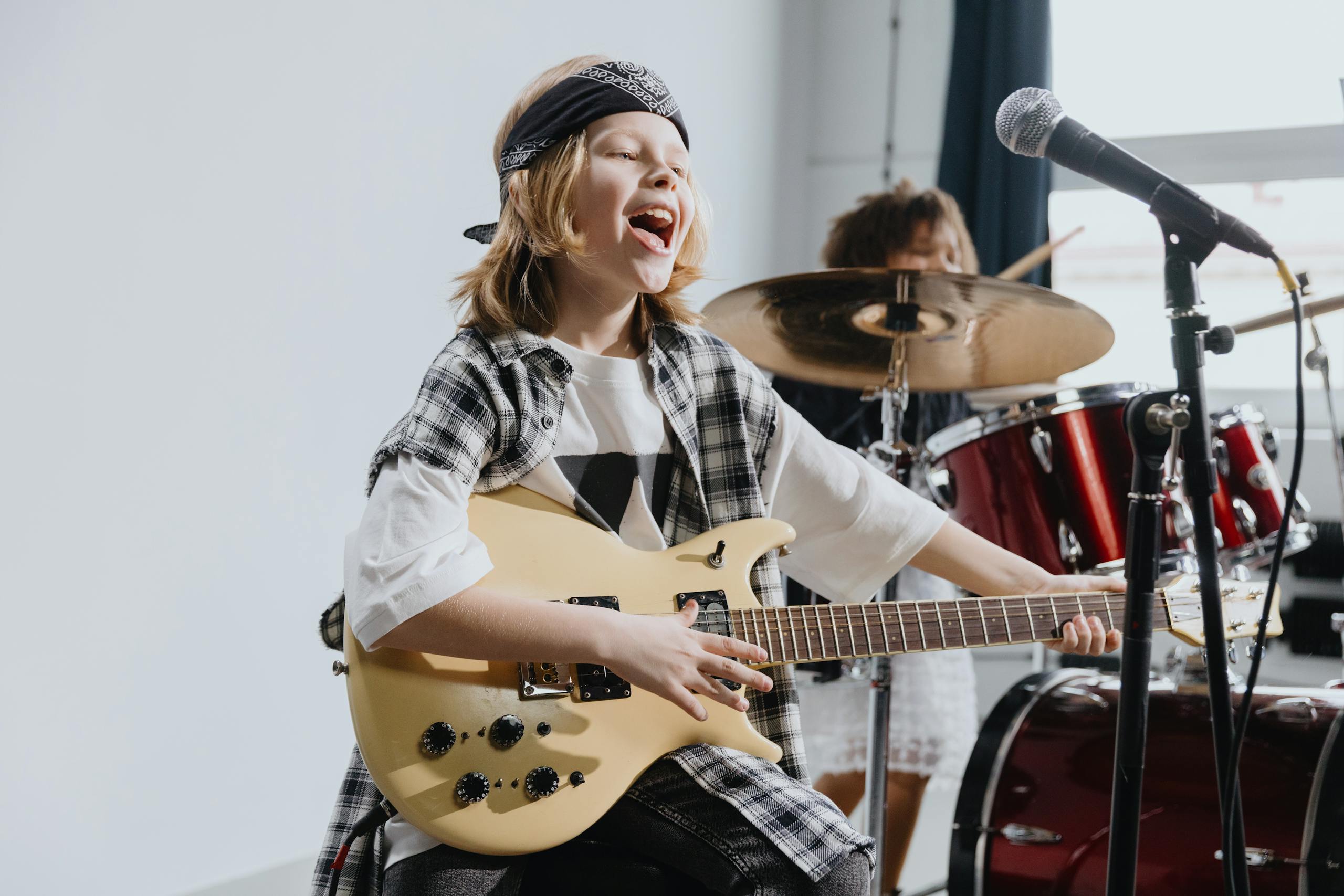

“My son is really enjoying his guitar lessons at Oakville Guitar Academy! The teacher is amazing, so glad that we found him!”
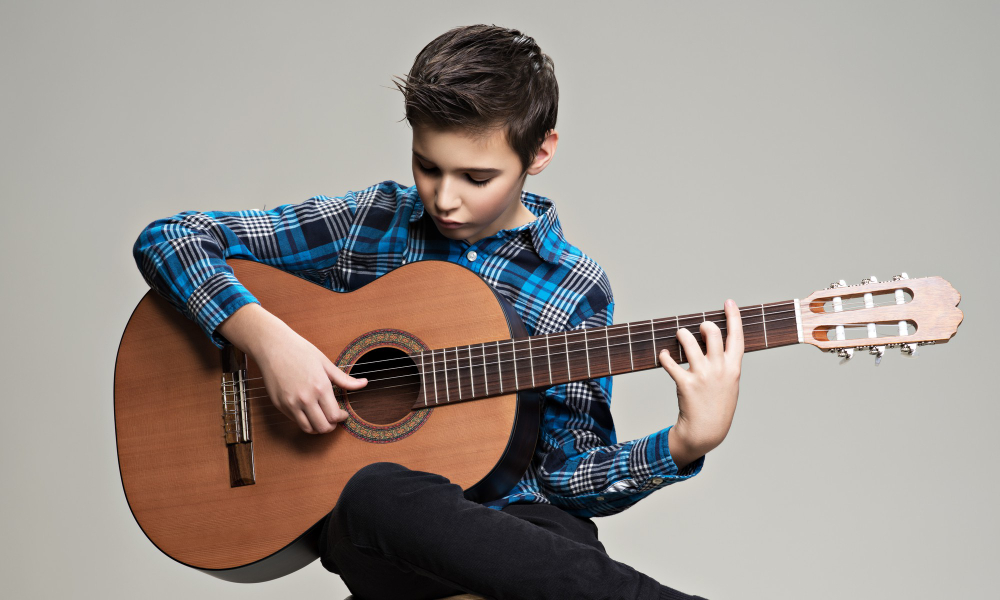
Fun, Structured Guitar Lessons for Kids
Guitar Programs and Lessons for Kids
Proven Guitar Methods That Inspire and Build Confidence
Whether your child is learning classical or popular styles, our structured programs—based on the Royal Conservatory or our own tested curriculum—make learning fun, motivating, and easy to follow, with no gaps along the way.
Our step-by-step acoustic program—designed to keep kids engaged while developing the confidence and habits of self-reliant, lifelong musicians. Created by an expert teachers for steady, meaningful growth.
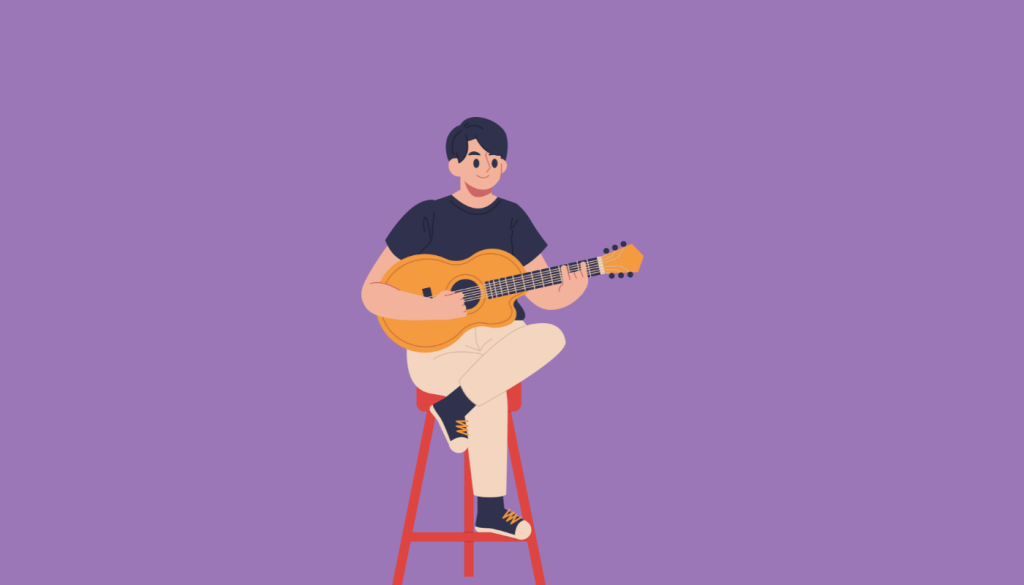
Acoustic Guitar
- 1:1 In-Person or Virtually
- Kid Friendly
- Learn at Your Own Pace
Help your child build confidence and creativity with our kid-friendly acoustic guitar program! Designed for young beginners, this course blends essential musical foundations with a fun, supportive environment that keeps kids engaged and excited to learn. Taught by experienced instructors, our step-by-step lessons make learning easy and enjoyable.
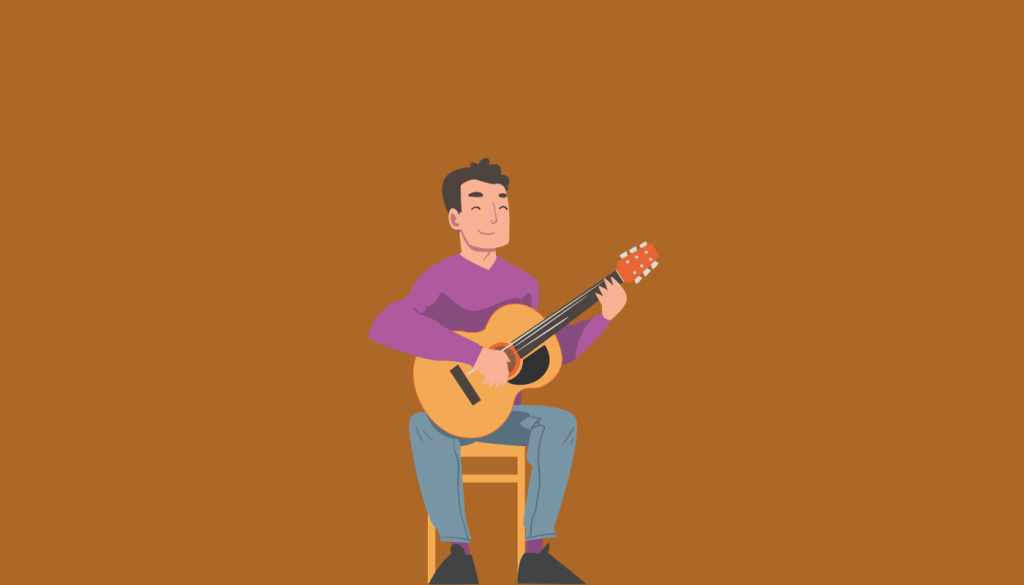
Acoustic Finger-style Guitar
- 1:1 1:1 In-Person or Virtually
- Kid Friendly
- Learn at Your Own Pace
Help your child build confidence and creativity with our kid-friendly finger-style acoustic guitar program! Designed for young beginners, this course blends essential musical foundations with a fun, supportive environment that keeps kids engaged and excited to learn. Taught by experienced instructors, our step-by-step lessons make learning easy and enjoyable.
Our structured rock guitar program keeps kids excited about learning while building the independence and motivation needed for a lifetime of music. Designed by experienced instructors and trusted by families.

Addictive Rock Guitar
- 1:1 In-Person or Virtually
- Kid Friendly
- Learn at Your Own Pace
Help your child build confidence and creativity with our kid-friendly Rock guitar program! Designed for young beginners, this course blends essential musical foundations with a fun, supportive environment that keeps kids engaged and excited to learn. Taught by experienced instructors, our step-by-step lessons make learning easy and enjoyable.
Our classical guitar students follow the Royal Conservatory of Music (RCM) curriculum—a trusted and nationally recognized program that provides a clear path for progress and musical development.

Classical Guitar 1
- 1:1 In-Person or Virtually
- Online Course (September)
- Blended (September)
- Royal Conservatory of Music Preparatory and Level 1 Classical Guitar Examinations

Classical Guitar 2
- 1:1 In-Person or Virtually
- Online Course (September )
- Blended (September)
- Royal Conservatory of Music Level 2 and Level 3 Classical Guitar Examinations

Classical Guitar 3
- 1:1 In-Person or Virtually
- Online Course (September )
- Blend (September)
- Royal Conservatory of Music Level 3 and Level 4 Classical Guitar Examinations
Free Trial Guitar Lesson
We believe in the power of a great first impression. That’s why we offer a free trial lesson for all new students. This initial session allows you to meet your instructor, experience our teaching style, and get a feel for what our lessons are all about.
